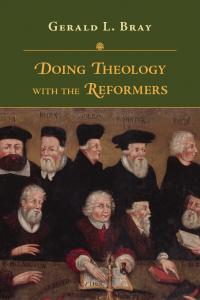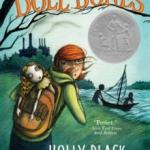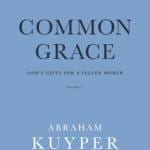IVP has been releasing the Reformation Commentary on Scripture. While it is expensive, it is also a fantastic series and churches seriously should consider a long-term budget to pick these up for their preachers. One thing this series has been missing, however, is a general introduction. This gap has been filled by the release of Gerald Bray’s excellent overview Doing Theology with the Reformers.

In six lengthy chapters, Bray gives us a thorough introduction to the world and theology of the Reformation era. In these chapters, he covers the shaping of the Reformers, the sources they drew from, their view of Scripture, their theology of the Holy Spirit, their political theology, and the end of the Reformation era in the rise of Confessionalism. Along the way, we meet Luther, Calvin, and especially Cranmer in detail.
In fact, those might be the two weak points of the book (though they may be requirements of the Commentary series they are intended to serve as a prologue for). First, Bray is really only doing theology with the magisterial reformers. The Anabaptists do make the occasional appearance, but they are only mentioned in passing rather than being included as Reformers who were also doing theology in the 16th Century. I suspect there are at least two reasons for this exclusion: 1) some of the Anabaptists fell into heresy, in ways that the magisterial Reformers tended not to; 2) the Anabaptist Reformers, even the orthodox ones, were varied in their thought–so varied that their inclusion would have made this a far, far longer work.
A second potential weakness, Bray tends to end his chapters with a summary based on Cranmer and/or a text from the English Reformation. For example, in the chapter on Scripture, Bray ends his discussion of predestination with a quote from the Forty-Two Articles:
Predestination to life is the everlasting purpose of God, whereby before the foundations of the world were laid, he hath constantly decreed by his counsel secret to us, to deliver from curse and damnation those whom he hath chosen in Christ out of mankind, and to bring them by Christ to everlasting salvation, as vessels made to honour.” (131-132)
I get why he did this in a sense: the Church of England was trying to strike a broad balance that angered no one and satisfied everyone. The problem is, the Reformed and the Lutherans (to say nothing of the Anabaptists) didn’t and don’t buy it. By using the Church of England as a capstone, Bray is only giving a broad explanation of Reformation theology if one already buys into the claims made by the Church of England. (And of course, the Church of England theology has to take a backseat in the chapter on church and state anyway).
Even with these two weaknesses (which of course aren’t exactly witnesses–they’re perfectly reasonable things to do in a book about the Reformation), as usual Bray’s writing is clear, engaging, and rich. He packs more into a 260 page book than most people do into a decade’s worth of writing. Which means you should definitely read this book.
Dr. Coyle Neal is co-host of the City of Man Podcast and an Associate Professor of Political Science at Southwest Baptist University in Bolivar, MO













